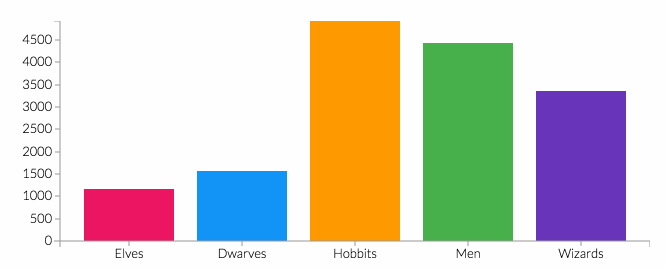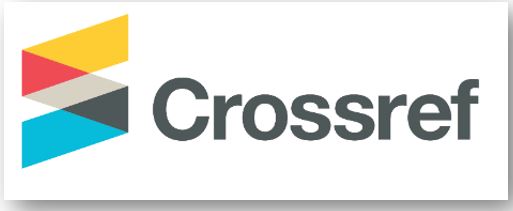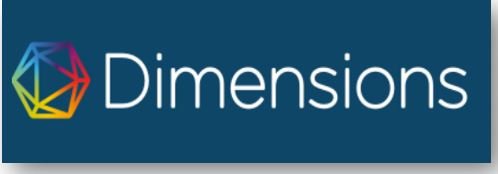Pendampingan Desa Wisata Politeknik Pariwisata Bali di Desa Wisata Cemagi
DOI:
https://doi.org/10.61231/jp2m.v2i3.240Keywords:
Community, Service, Study, Tourism, VillageAbstract
The purpose of community service activities is to carry out the socialization of the tourist village program, which was carried out by the Hospitality Management Study Program, Bali Tourism Polytechnic, on June 23, 2023. The implementation of community service activities is carried out through the delivery of material related to the socialization of government regulations on tourist villages, the scope and steps in managing tourist villages, including accommodation related to tourist villages, in an effort to identify the various strengths, weaknesses, obstacles and opportunities faced by Cemagi Tourism village. The Cemagi Tourism Village study involved 25 community members, accommodation business managers, village government, and village community organizations. The results found that Cemagi Tourism Village has the strengths of beautiful and unique natural resources and a calm atmosphere, weaknesses in the form of tourism facilities and products that characterize it, opportunities in the form of infrastructure development and promotion that support tourism growth and increase attractiveness for visitors, and threats in the form of competition with other tourist destinations in Bali that are close to each other, and environmental impacts due to the surge in visitors can damage the natural preservation of Cemagi village
References
Andajani, E., Widjaja, F. N., & Prihatiningrum, A. E. (2017). Pengembangan Potensi Desa Wisata melalui Analisa SWOT Di Kecamatan Kalitidu Bojonegoro. Senaspro2, 1(1), 909–915.
Astuti, N. N. S. (2018). Designing Bali tourism model through the implementation of tri hita karana and sad kertih values. International Journal of Linguistics, Literature and Culture, 5(1), 12–23. https://doi.org/10.21744/ijllc.v5n1.461
BPS Kabupaten Badung. (2017). Kabupaten Badung Dalam Angka Tahun 2017.
Cemagi, D. T. W. P., Cemag, D., Balawista, B., Air, A., Kuta, P., Cemagi, D. T. W. P., Hindia, S., Khayangan, D., Gede, P., Ngaus, B., & Lot, T. (2022). Pantai Cemagi Diusulkan Jadi DTW, Ini Upaya Desa Adat Senin, 18 April 2022, 18:05 WITA. April.
Desak, N., & Santi, M. (2023). Tourism Wellness Industry as Local Culture in Millenial Perspective at Tourism Polytechnic in Bali. 2(2), 131–140.
Dewi, P. J. S., Fahmi, M. I., Herachwati, N., & Agustina, T. S. (2022). Perumusan Strategi Pengembangan Desa Wisata Tritik Kabupaten Nganjuk Berbasis Analisis SWOT. Amalee: Indonesian Journal of Community Research and Engagement, 3(1), 193–203. https://doi.org/10.37680/amalee.v3i1.1370
Diwyarthi, N. D. M. S. (2022). Glamping Dalam Pandangan Wisatawan Pada Era Industry 4.0 Dan Society 5.0. Journal of Hotel Management, 1(1), 37–58.
Diwyarthi, N. D. M. S., Pratama, I. W. A., & Eddy, I. W. T. (2023). Tourist Perspective Toward Glamping Accomodation In The Era of Industry 4.0 and Society 5.0. Jurnal Syntax Transformation, 4(1), 59–76. https://doi.org/10.46799/jst.v4i1.672
Hanana, A., Elian, N., & Marta, R. (2017). Strategi Komunikasi Persuasif Dalam Menciptakan Masyarakat Sadar Wisata Di Kawasan Wisata Pantai Padang, Kota Padang. Jurnal Ilmu Sosial Mamangan, 6(1), 34–46. https://doi.org/10.22202/mamangan.v6i1.1886
Kartimin, I. W., Mekarini, N. W., & Arini, N. N. (2022). Potensi Desa Wisata Munggu Sebagai Daya Tarik Wisata Berbasis Masyarakat Di Kabupaten Badung. Jurnal Ilmiah Hospitality Management, 13(1), 34–41. https://doi.org/10.22334/jihm.v13i1.223
Krisnadi, A. R., & Dewantara, Y. F. (2018). Analisis Strategi Pengembangan Pariwisata Di Mice Kota Batam. Journal FAME: Journal Food and Beverage, Product and Services, Accomodation Industry, Entertainment Services, 1(1). https://doi.org/10.30813/fame.v1i1.1325
Mananda, I. S., & Dewi, L. G. L. K. (1970). Strategi Pemasaran Desa Ubud sebagai Destinasi MICE. Jurnal Bali Membangun Bali, 1(1), 27–52. https://doi.org/10.51172/jbmb.v1i1.9
Melia, A., Roslinda, E., & Prayogo, H. (2022). Modal Sosial Masyarakat Dalam Pengelolaan Tembawang di Desa Paloan. Jurnal Tengkawang, 12(1), 1–29.
Nuruddin, Wirawan, P. E., Pujiastuti, S., & Astuti, N. N. S. (2020). Jurnal Kajian Bali. Jurnal Kajian Bali Journal of Bali Studies, 10(23), 579–602. http://ojs.unud.ac.id/index.php/kajianbali
Pratama, I. W. A. (2023a). Pelatihan Digital Marketing Untuk Pemasaran Desa Wisata di Kepulauan Wakatobi. Jurnal Masyarakat Madani Indonesia, 2(1), 27–32. https://doi.org/10.59025/js.v2i1.60
Pratama, I. W. A. (2023b). Pelatihan Strategi Pemasaran Produk Umkm Kube Saraswati Sebagai Sarana Pemberdayaan Masyarakat Di Desa Wisata Jatiluwih, Tabanan-Bali. Bina Cipta, 2(1), 1–10. https://doi.org/10.46837/binacipta.v2i1.12
Pratama, I. W. A., & Ramadhan, I. (2022). Studi Netnografi: Dimensi Kepuasan Wisatawan Nusantara Terhadap Homestay di Ubud. Jurnal Ilmiah Hospitality Management, 13(1), 26–33. https://doi.org/10.22334/jihm.v13i1.216
Rokip, A., Murni, N. G. N. S., Prihatini, N. P. M., Nurjaya, I. W., & Pemayun, I. D. G. A. (2022). Green Tourism Implementation to Create an Environmentally Friendly Accommodation. Jurnal Bali Membangun Bali, 3(2), 157–166. https://doi.org/10.51172/jbmb.v3i2.233
Suandewi, N. P. L. (2018). Model dan Proses Pengembangan Entrepreneurship Di Kawasan Pantai Pandawa Desa Adat Kutuh. Jurnal Manajemen Bisnis, 15(4), 109–126. http://journal.undiknas.ac.id/index.php/magister-manajemen/article/view/2284
Woda, B. E., Birowo, M. A., Vidiadari, I. S., & Nuswantoro, R. (2021). Pandemic Journalism: A Study of Covid-19 News Coverage on detik.com. Jurnal ASPIKOM, 6(2), 235. https://doi.org/10.24329/aspikom.v6i2.906
Downloads
Published
Issue
Section
License
Copyright (c) 2024 Ni Desak Made Santi Diwyarthi, I Gusti Agung Gede Witarsana, Kadek Andita Dwi Pratiwi, Ni Made Suastini, I Wayan Jata, Prastha Adyatma, Clearesta Adinda, I Wayan Adi Pratama

This work is licensed under a Creative Commons Attribution 4.0 International License.
You are free to:
- Share — copy and redistribute the material in any medium or format for any purpose, even commercially.
- Adapt — remix, transform, and build upon the material for any purpose, even commercially.
- The licensor cannot revoke these freedoms as long as you follow the license terms.
Under the following terms:
- Attribution — You must give appropriate credit , provide a link to the license, and indicate if changes were made . You may do so in any reasonable manner, but not in any way that suggests the licensor endorses you or your use.
- No additional restrictions — You may not apply legal terms or technological measures that legally restrict others from doing anything the license permits.
Notices:
You do not have to comply with the license for elements of the material in the public domain or where your use is permitted by an applicable exception or limitation .
No warranties are given. The license may not give you all of the permissions necessary for your intended use. For example, other rights such as publicity, privacy, or moral rights may limit how you use the material.















